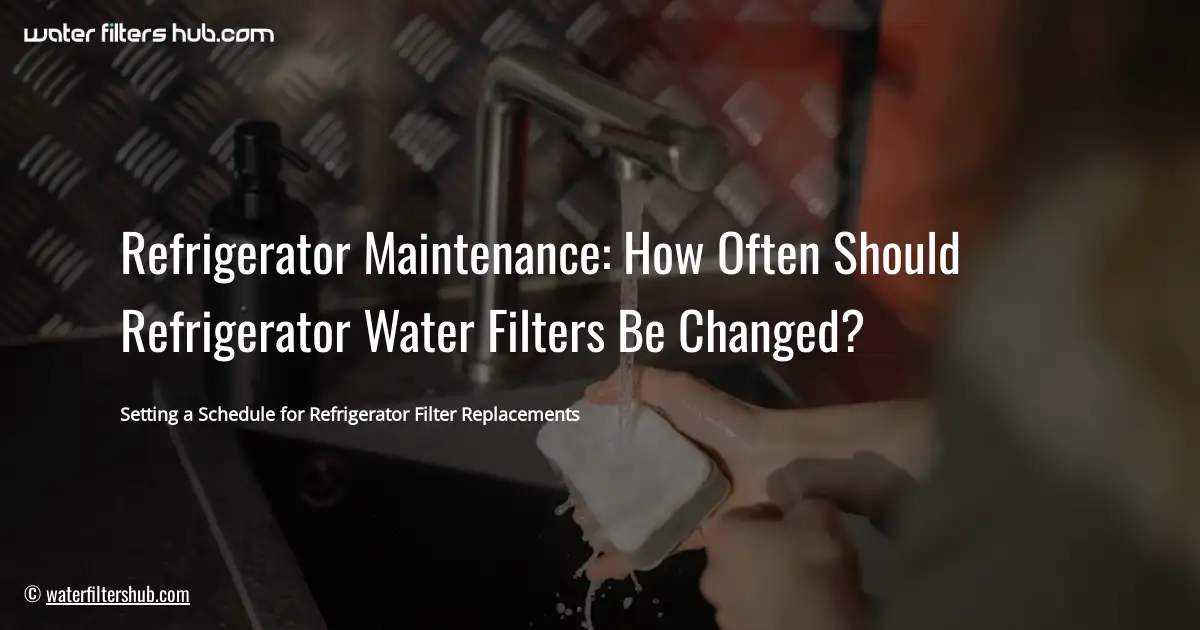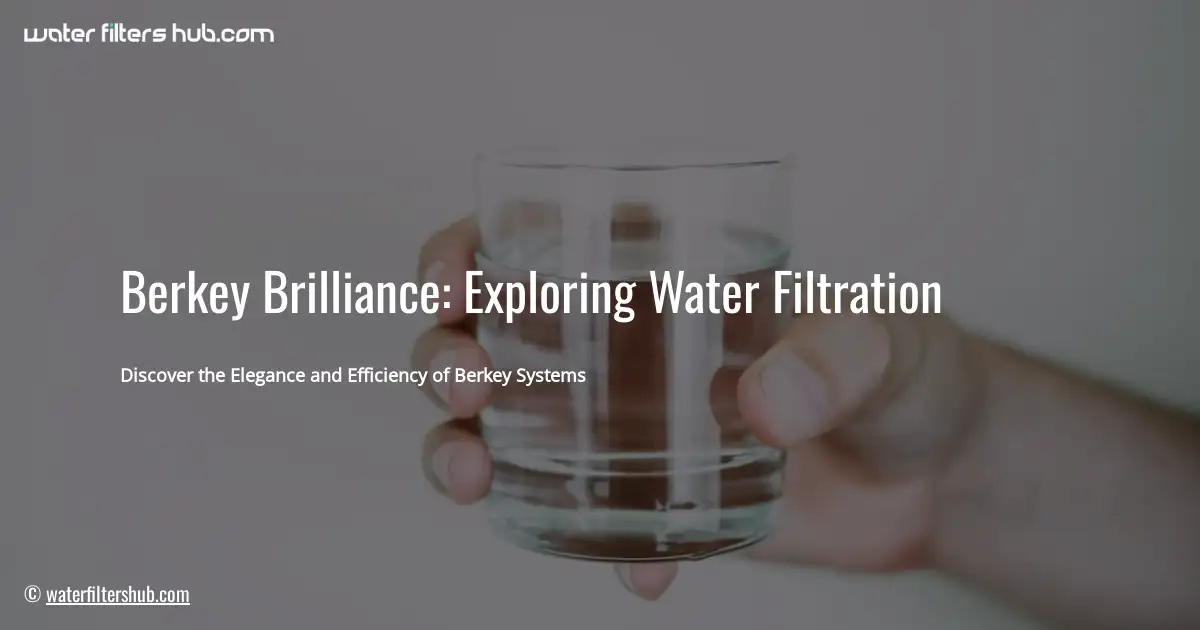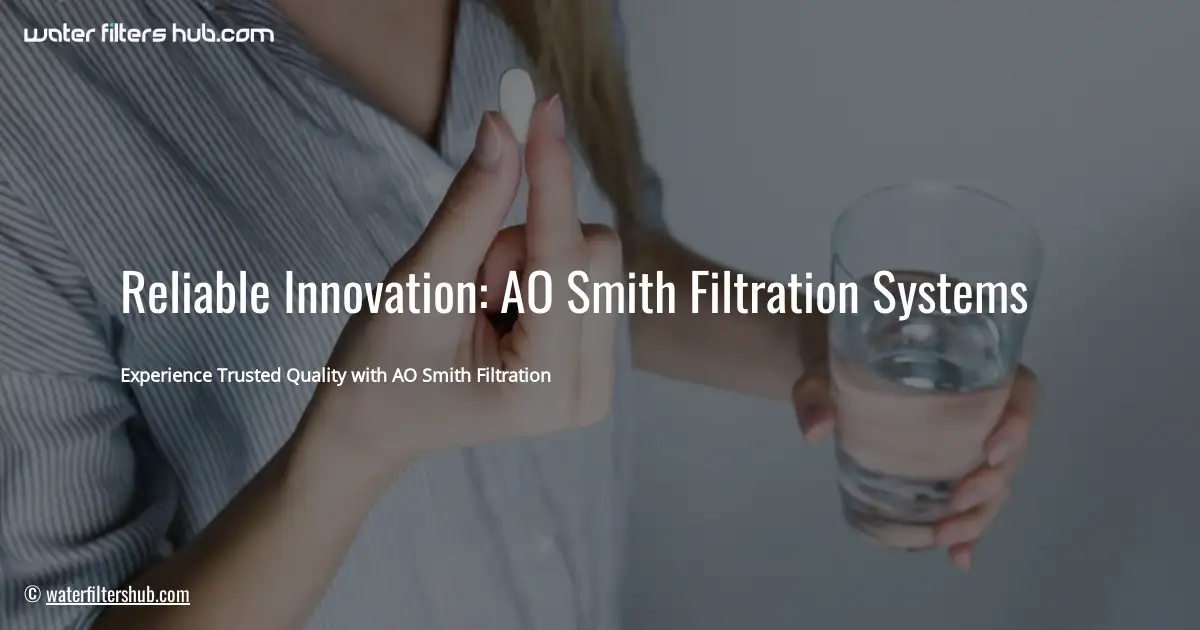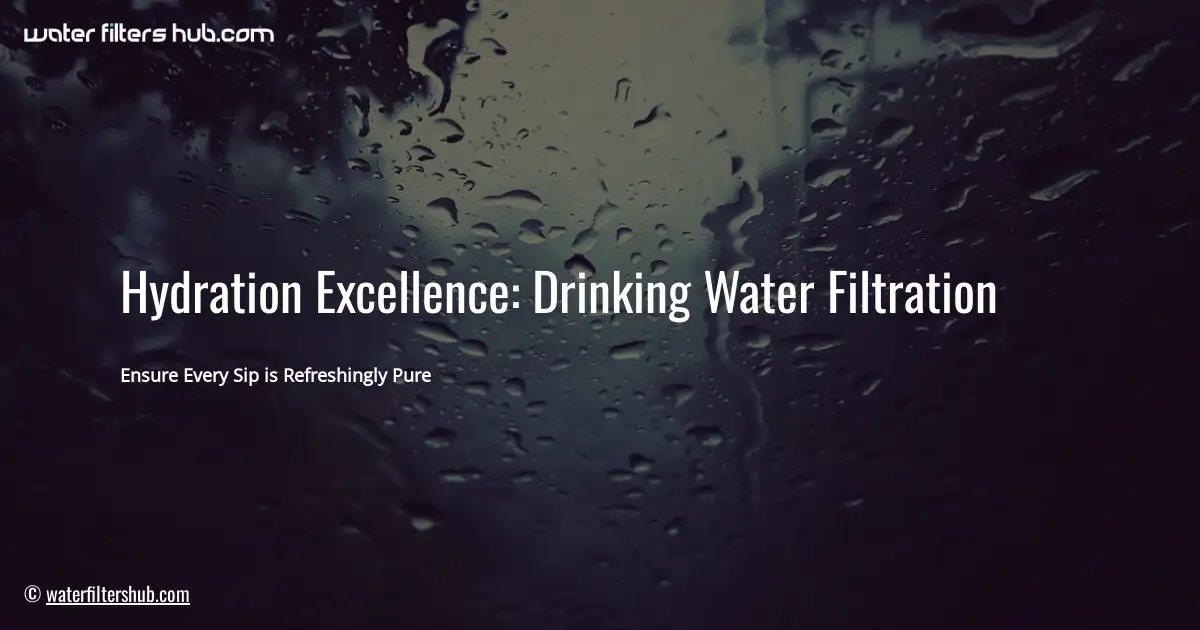Setting a Schedule for Refrigerator Filter Replacements
“Clean water is like liquid gold for our bodies!” 💧
Refrigerator water filters are the unsung heroes of our kitchens, silently purifying the water we drink, cook with, and make ice with. They act as tiny guardians, trapping harmful contaminants and impurities, ensuring we enjoy the purest, most refreshing H2O possible.
Just imagine sipping on a glass of water that tastes crisp and clear, free from any funky odors or discoloration. That’s the magic of a clean water filter! It’s like having a personal water purification plant right in your fridge. So, let’s give these unsung heroes the attention they deserve and keep our water sparkling clean!
Every household has unique water needs and usage patterns. To determine the optimal filter replacement schedule for your fridge, consider these factors:
- Water Quality: Hard water, with high mineral content, can clog filters faster.
- Usage: If you’re a family of thirsty water guzzlers, your filter will need more frequent attention.
- Filter Type: Different filters have varying lifespans. Check the manufacturer’s recommendations for your specific model.
Remember, it’s better to err on the side of caution and replace your filter more often than not. A clogged filter can compromise the quality of your drinking water and even damage your fridge.
“Ugh, my water tastes like chlorine!” 🤢 If you’re noticing strange or unpleasant flavors in your filtered water, it’s a telltale sign that your filter is clogged. Over time, contaminants and impurities build up in the filter, affecting the taste and odor of your water. Don’t let your water become a nasty surprise – replace your filter regularly to keep it tasting fresh and delicious.
Types of Refrigerator Filters
UV filters are like the superheroes of water filtration, using ultraviolet light to zap away microorganisms. They’re particularly effective against bacteria, viruses, and cysts that can cause nasty illnesses. Think of them as the guardians of your water, keeping it pure and safe.
Pros:
- Powerful disinfection: UV filters are highly effective at killing bacteria and viruses, making them a great choice for areas with contaminated water sources.
- No chemicals: UV filters don’t use any chemicals, so you can enjoy clean water without worrying about any nasty additives.
Cons:
- Doesn’t remove minerals: UV filters don’t remove minerals from water, which might not be an issue for some but could be a concern for those with specific dietary needs.
- Can damage filter: UV filters can be damaged by exposure to sunlight, so it’s important to keep them in a shaded area.
Choosing the Right Filter 🧊💧
When selecting a refrigerator water filter, it’s crucial to consider your specific needs and the quality of your water supply. If you’re unsure, test your water to determine the presence of contaminants. Activated carbon filters are effective at removing chlorine, taste, and odor, while reverse osmosis filters can remove a wider range of impurities, including heavy metals. UV filters are ideal for eliminating bacteria. Check the manufacturer’s recommendations for the best filter type for your refrigerator and water quality.
Certifications and Standards
Look for filters that have been certified by independent organizations such as NSF International. These certifications ensure that the filter meets specific performance standards and removes harmful contaminants effectively. Certified filters provide peace of mind and assurance that you’re getting the best possible filtration for your drinking water.
HOW OFTEN SHOULD REFRIGERATOR WATER FILTERS BE CHANGED ON YOUTUBE
How to Replace a Refrigerator Water Filter
“Like a puzzle piece fitting into place,” the new filter should slide smoothly into the designated slot. Gently push it until it clicks into position, ensuring a snug fit. This crucial step prevents leaks and ensures optimal water filtration.
| Step | Action |
|---|---|
| 6 | Insert the new filter into the housing and push until it clicks into place. |
Benefits of Regular Filter Replacements
Regularly changing your refrigerator water filter is like giving your taste buds a standing ovation! 🎭 Not only does it ensure you’re sipping on H2O that’s as pure as a mountain stream, but it also keeps your fridge humming along like a well-oiled machine.
Think about it this way: a clogged filter is like a traffic jam for your water. 🚦 It slows down the flow, making it harder to quench your thirst. Plus, the trapped impurities can give your water a funky taste or odor, which is about as appealing as a wet sock. 🧦
But fear not, my thirsty friend! By replacing your filter regularly, you’re opening the floodgates to a world of clean, refreshing water. 💧 Your taste buds will thank you, and your fridge will be purring like a contented kitty. 🐈⬛ So, mark your calendar and make filter replacements a part of your kitchen routine. It’s the secret to a fridge that’s both healthy and happy!
Troubleshooting Filter Issues
If you encounter persistent problems with your refrigerator water filter, it’s best to call in the pros. Signs that you need professional help include:
- No water flow: If water isn’t flowing through the dispenser despite replacing the filter, there could be an issue with the water line or dispenser itself.
- Leaking water: A leak around the filter housing or water line indicates a potential problem that requires professional attention.
- Unusual noises: Loud noises or vibrations coming from the refrigerator after replacing the filter may indicate a more serious issue.
- Contaminated water: If you suspect the water is still contaminated after changing the filter, it’s crucial to contact a plumber or appliance repair technician to identify the source of the contamination.
After replacing the filter, it’s crucial to flush the water system to remove any loose carbon particles or air bubbles. Here’s how:
- Run cold water from the dispenser for 5-10 minutes until the water runs clear.
- Repeat this process for the ice maker by pressing the dispenser arm several times.
- This simple step ensures that your water and ice are free from impurities and taste great! 🚰
Conclusion
Importance of Filter Replacements
Like a diligent gardener tending to their prized blooms, we must nurture our refrigerators with regular filter replacements. By adhering to the recommended schedule, we ensure that our water remains pure, our appliances thrive, and our health is safeguarded.
Just as a clogged filter can compromise the taste and quality of our water, neglecting its replacement can have detrimental consequences. It’s like driving a car with dirty oil, inviting trouble down the road. A clean filter acts as a vigilant guardian, protecting us from harmful contaminants and ensuring the smooth operation of our refrigerators.
So, let’s embrace the habit of regular filter replacements, not only for the sake of our appliances but also for our own well-being. Let’s keep our refrigerators humming with health and our water sparkling with purity.
[PDF] ABOUT THE GE® RPWF WATER FILTER CARTRIDGE
IN-HOME WATER FILTRATION OPTIONS FOR HOUSEHOLD DRINKING WATER
HOW OFTEN DO WATER FILTERS NEED TO BE CHANGED
HOW MUCH ARE WATER FILTERS FOR REFRIGERATORS
HOW OFTEN CHANGE WATER FILTER BRITA
HOW OFTEN SHOULD WATER FILTERS BE CHANGED
HOW GOOD ARE BRITA WATER FILTERS







Leave a Reply